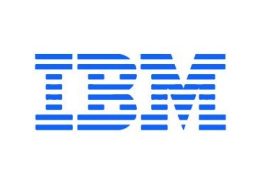Transcript
KERNEN: Doug, I wanted to talk to you earlier about this and your call that could be the trade of the decade.
And that's the short bonds in which, I think what gets interesting in times like this is that for how many years have we decided that rates have nowhere to go but up?
And I remember at the beginning of this year, everyone said over four percent, everyone, every economist.
KASS: I did not.
KERNEN: Maybe you didn't.
KASS: In my surprise list, I said the ten-year yield will go under three percent.
KERNEN: Well, you also said that Democrats would pick up seats in the House and the Senate.
KASS: Right.
KERNEN: So you said some other interesting things, too, that -- and you've come to that. You said you were dead wrong about that.
KASS: Yes, yes.
KERNEN: OK. But on the bond call, if you had started the year saying we're going up above -- people have tried to stay short bonds longer than their finances have allowed them to stay short. And now we're staring at the ad we have, ka ching, ka ching, ka ching with the.
QUICK: Central banks.
KERNEN: Yes, the central banks all across the world turning them in and gold at $1,300 and a slow economy, yet industrial commodities all went up. It's staring you in the face to the point of where it almost sounds too obvious to work.
But it's like rates have nowhere to go but up, right? Right?
KASS: But (ph) to argue (ph).
(CROSSTALK)
KERNEN: How come it's such a hard trade (ph) to make?
KASS: The reason it's hard is because short rates are anchored as zero for the time being, but the.
KERNEN: Artificially?
KASS: Artificially. There's a possibility -- a zero interest rate policy. But there is a possibility that QE II fails just like QE I failed and the administration will be forced into some sort of transformative jobs program.
More fiscal stimulation at the expense of monetary and that will provide growth.
KERNEN: And that would be the end of the bond market.
KASS: That would be the end of the bond market. I guarantee you.
KERNEN: So -- OK. So we print more money. That wouldn't work. And that would make us print even more money is what you're saying kind of?
KASS: We'd have a focused transformative jobs program much like Mr. Augustine talked about.
KERNEN: Which would also be expensive.
KASS: Yes.
KERNEN: And it's expensive around the globe right now for everybody.
KASS: Right, right.
KERNEN: .just like the ad has.
All right, Doug, thank you.
QUICK: Thanks for coming in, Doug.
KASS: Thank you.
KERNEN: You haven't had any sea breezes yet today, right? That's just the name of your.
KASS (ph): .you know it is a drink.
KERNEN: Right.
KASS: I do know. I also live on Seabreeze Avenue in Palm Beach, Florida.
KERNEN: OK, that makes sense and all right, it doesn't mean it's -- OK, thank you.
KASS: Thanks for having me.
END












